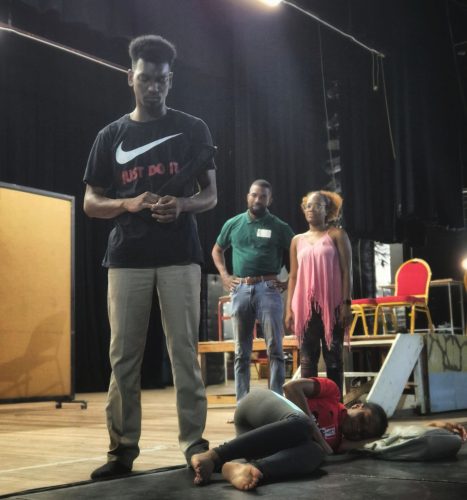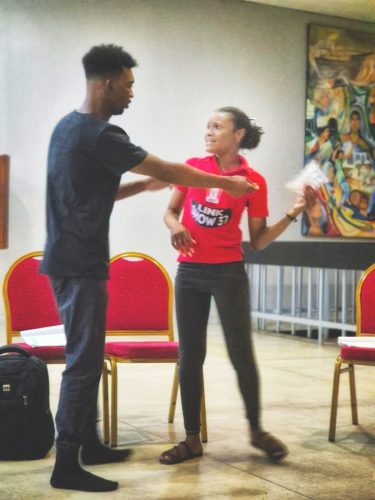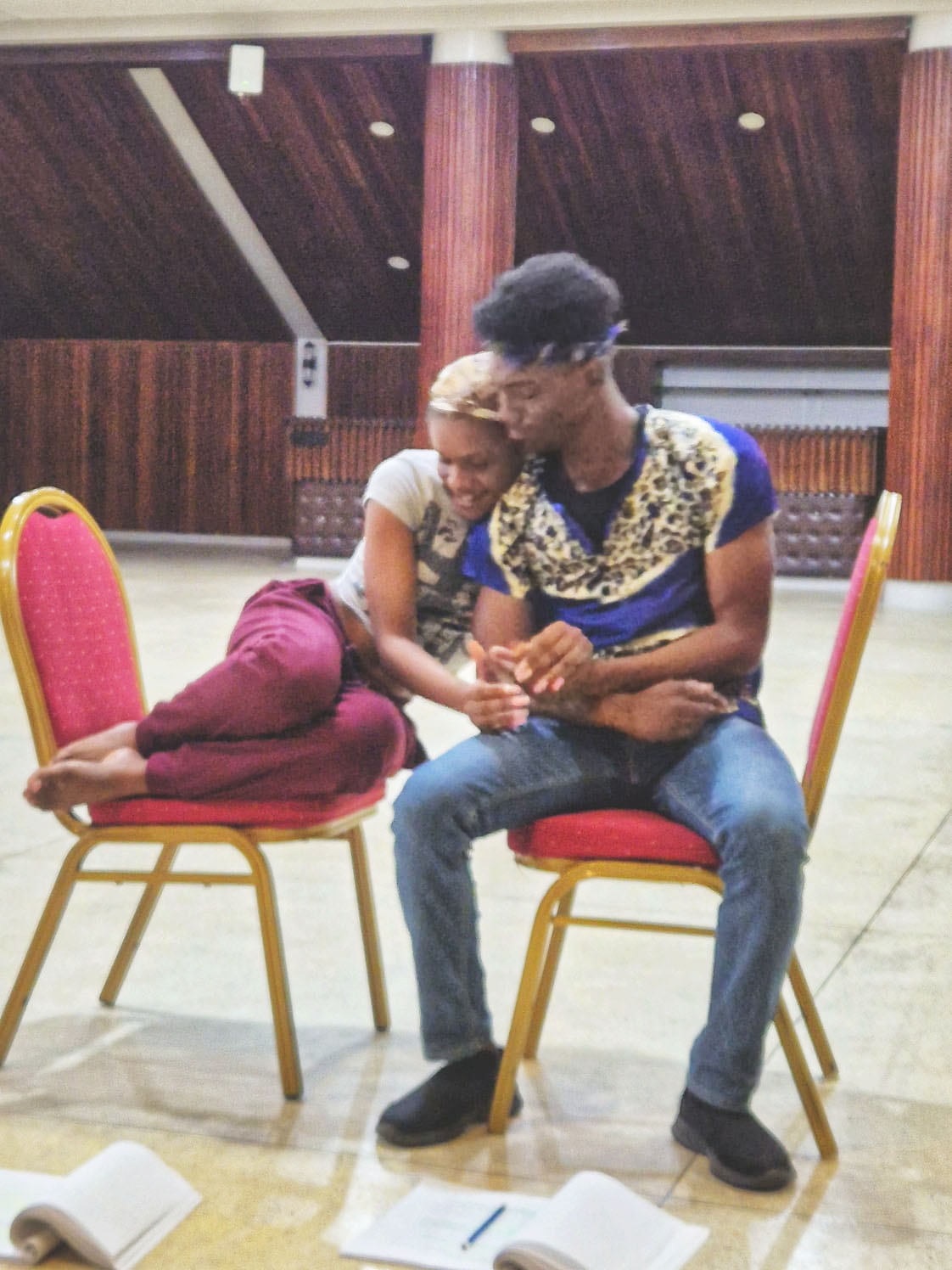 In the fading light of an ill-fated afternoon, at 5 pm on December 9, 1994, the peace and quiet of Buxton and Friendship on the East Coast Demerara in Guyana were tragically shattered when 34 year-old Hubert Headley, known to everyone as “Baby Arthur” ran berserk with a cutlass through the streets of the communities slaughtering six people and a dog and injuring two others. It was a 20-minute killing spree which ended when Headley was shot down by the police who he also attacked when they confronted him.
In the fading light of an ill-fated afternoon, at 5 pm on December 9, 1994, the peace and quiet of Buxton and Friendship on the East Coast Demerara in Guyana were tragically shattered when 34 year-old Hubert Headley, known to everyone as “Baby Arthur” ran berserk with a cutlass through the streets of the communities slaughtering six people and a dog and injuring two others. It was a 20-minute killing spree which ended when Headley was shot down by the police who he also attacked when they confronted him.
The tragedy of the Baby Arthur massacre hung over Buxton and Friendship for several years after, turning into legend and mythology across villages, in Georgetown and over the shocked consciousness of the country.
According to accounts of the horrific incident, Headley first attacked a 14 year-old boy who escaped with minor injuries, following which he stole a bicycle and a cutlass and in a grotesque ride around the two villages took “the lives of his 59-year-old mother Hyacinth Arthur, 44-year-old Dennis Joseph called ‘Bunny’, Maude Hutton, 56, 18-year-old Sean Sullivan, seven-year-old Melissa Valentine (or Melissa France), two-year-old Semple Peters and a hapless dog who crossed his path.” His niece Eileen was also attacked, but escaped with very minor injury.

One researcher who followed up on an investigation of the story was Joanna Hope who recounted that Headley had a long history of mental illness, visits to mental institutions, violence and drug abuse. He was apparently addicted to cocaine which he constantly purchased. For years before the dramatic murders, he was reported to have waged a reign of terror over his mother in particular, other family members and residents of Buxton and Friendship. His victims were especially women, who he repeatedly threatened with rape and other forms of violence. This misogyny was most noticeably aimed at his own mother, Hyacinth Arthur, who eventually perished in the 1994 massacre..
As the afternoon’s mayhem drifted into legend and myth, much of it remained a mystery and several questions lingered, unanswered. The entire misadventure attracted the attention of Guyanese playwright Mosa Telford, who happens to be a resident of Buxton. Telford had already written plays with themes of violence, vice and scandal. Among her more memorable dramas is “Dark Shadows”, a short play about trauma in a family and dark secrets which was the best play in the first National Drama Festival (NDF).
She later wrote on the issue of domestic violence with another NDF prize-winning short play called “Before Her Parting” and won the Guyana Prize for Drama with the full-length work “Sauda”. Inspired by the tragic tale of Baby Arthur, she wrote “Children of Baby”, winner of second place in the 2022 Guyana Prize. In this drama she recreated fictitious frames and backgrounds in an attempt to investigate, to try to search the killings driven by cocaine and madness for their psychological explanations. She created a drama around a character called “Baby” who took to drugs and was triggered off to commit a  killing spree.
killing spree.
This play was selected to be produced as the latest in the series of Guyana Prize Plays being sponsored by the Ministry of Culture in Guyana which is dedicated to seeing plays which won prizes in the Guyana Prize produced on stage. Pro-duced by the National Drama Company (NDC) and directed by Nickose Layne, it is being staged this weekend (last night and tonight) at the National Cultural Centre.
The play is designed by Layne and Esther Hamer with Ayanna Waddell as Stage Manager and head of a production team which also includes O’Neilka Bacchus, Deandra Daniels, Kim Fernandes, and Tashandra Inniss as part of a marketing and management team. Choreography is by Jonathan Hamer.
The stage drama begins with a double scene – at one side a baby is being born while at the other, a baby has died. This dramatic juxtaposition of life and death sets the scene for the psychological and social explorations that try to seek explanations for the sources of social deterioration and tragedy.
At the centre is the love story of Damien (Kevin Kendall) a young policeman and Angel (Latiefa Agard) a nurse who grew up together after the tragic incident in which Baby (Frederick Minty), a young man in the village under cocaine addiction killed their parents. They are both taken in by Ma Dalla (Kim Samuels), obsessed with “the righteous life” under a dogmatic Christianity corrupted by her own demons of sin and retribution. She turns out to be a central focus in the play’s balancing of life and death.
The story of these characters is not linear, but is played out through several scenes and stages in the drama. Director Layne sees it as a masquerade and shapes the action of the play around a traditional Guyanese masquerade with characters akin to some of the traditional masquerade characters and the band of flouncers. These flouncers, including the stilt dancers, take over the stage and the entire theatre in another display of avante-garde postmodernism, a chosen style of the NDC.
The traditional Guyanese masquerade is itself a dance of celebration and tragedy and is therefore used as one of the dramatic and theatrical rhythms and drivers of the production. The idea is that the moment patrons enter the cultural centre foyer they are greeted by the dancers; they walk into the set and the setting of the play. This production thus promises local audiences an experience in modern theatre which is different and artistic.
Other members of the cast include Mark Luke-Edwards, Tchaiko Rodney, Sherese Vandyke, Justine Hamer, Jasmine Hamer, Ezeikel Hamer and Kareem Jabbar. The production management and staging are supported by technicians. Some of the performers were invited in as associates and guests of the NDC.






